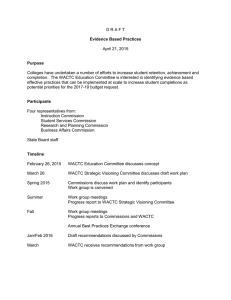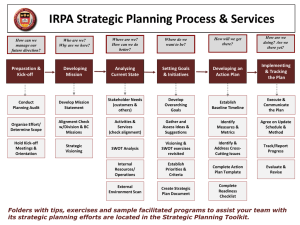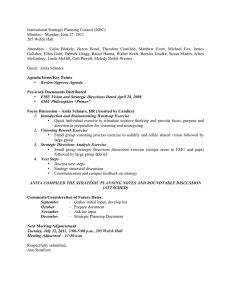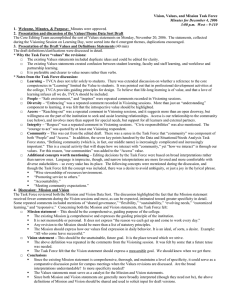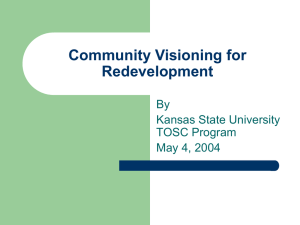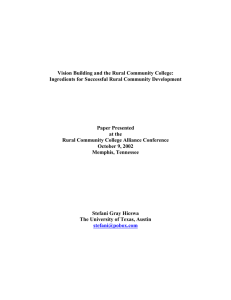Vision Building and the Rural Community College:
advertisement
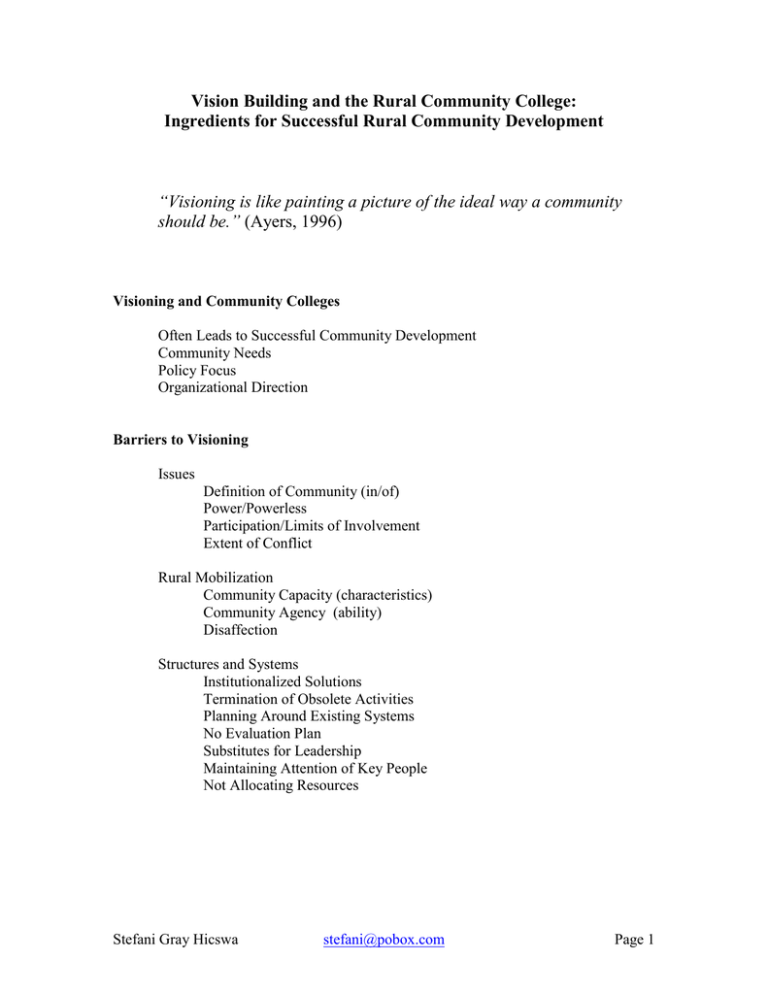
Vision Building and the Rural Community College: Ingredients for Successful Rural Community Development “Visioning is like painting a picture of the ideal way a community should be.” (Ayers, 1996) Visioning and Community Colleges Often Leads to Successful Community Development Community Needs Policy Focus Organizational Direction Barriers to Visioning Issues Definition of Community (in/of) Power/Powerless Participation/Limits of Involvement Extent of Conflict Rural Mobilization Community Capacity (characteristics) Community Agency (ability) Disaffection Structures and Systems Institutionalized Solutions Termination of Obsolete Activities Planning Around Existing Systems No Evaluation Plan Substitutes for Leadership Maintaining Attention of Key People Not Allocating Resources Stefani Gray Hicswa stefani@pobox.com Page 1 Bridges to Visioning Foundation Adaptation to Change Acceptance of Controversy Mobilization of Resources Community Assessment Community Capacity Visioning Champion or “Sparkplug” Training Orientation Meetings Share Vision with Stakeholders and Investors Identify Key Players Involvement in Decision Making Implementation Identify Team Identify Methods Monitor Progress Congruent Strategies Supportive Structures and Systems Evaluation Conclusion Not all communities are candidates for visioning. Not all community colleges are suited to provide visioning leadership. “Although the task appears enormous, [visioning] is a worthy challenge for those concerned with rural community development.” (Summers, 1986) Stefani Gray Hicswa stefani@pobox.com Page 2
